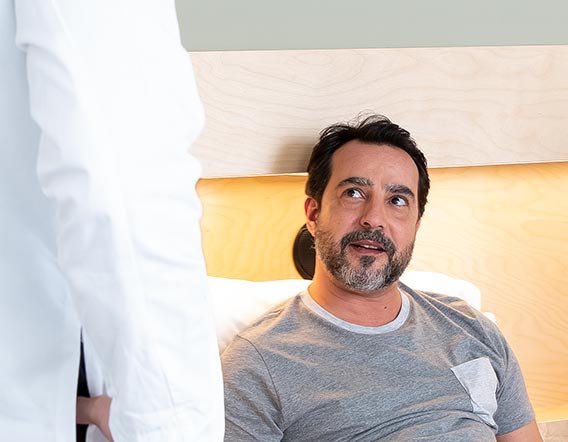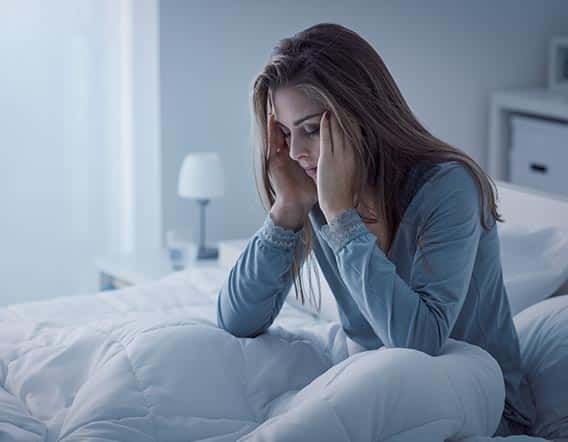Circadian rhythm disorders
Sleep disordersThe circadian rhythm disorders
What is it ?
The term circadian comes from the Latin phrase circa diem, which means “around a day”. In medicine, the circadian rhythm is a cycle of approximately 24 hours that is naturally present in all living organisms and regulates the back-and-forth between states of rest and activity.
In humans, this rhythm is controlled by the internal clock, located in a part of the brain called the hypothalamus. This period equates to 24.2 hours.
This internal rhythm is slightly longer than the astronomical day, meaning it must constantly be adjusted.
To do this, our internal clock relies on synchronisers or zeitgebers (timekeepers), the most powerful of which is light. There are other synchronisers such as the rhythm of meals, physical exercise and social activities.
10’000, this is the number of neurons that make up our circadian clock in the brain structure called the hypothalamus.
Circadian rhythm disorders
A circadian rhythm disorder is the result of a desynchronisation of the sleep-wake cycle in relation to the external environment. There are several types of circadian rhythm disorders:
Phase delay
The subject naturally falls asleep and wakes up later than average. This tendency is physiologically typical in adolescents and can be aggravated by the use of screens in the evening.
Phase advance
The subject falls asleep earlier than average, around 7-8pm or even earlier, then wakes up between 2 and 4am. This tendency is physiologically typical in the elderly.
Irregular sleep rhythm
The subject has fragmented sleep, with at least three short and irregular episodes. Not to be confused with the need for a nap, which may be a sign of non-restorative sleep.
Free-running sleep rhythm
Sleep is shifted by dozens of minutes every day. Most often, this disorder is related to living in a low-light environment or to blindness.
Shiftwork
Strongly staggered or irregular working hours (e.g. 3 rotating shifts) are not compatible with our biological clock and can lead to specific rhythm disorders, with an increased risk of occupational accidents as well as commuting accidents.
Jet lag
Jet lag is linked to the time difference experienced during long-haul travel. The rhythm controlled by the internal clock is no longer in sync with external day-night signals.
The consequences of circadian rhythm disorders
Patients with circadian rhythm disorders most often complain of insomnia, excessive daytime sleepiness, non-restorative sleep, mood swings or difficulties in concentrating. Subjects don’t sleep when they’re supposed to and feel a great deal of discomfort, especially when they have to keep with a specific schedule.
Document to download
En savoir plus
Sleep diary

Insomnia

 Share on facebook
Share on facebook
 Share on twitter
Share on twitter
 Share on linkedin
Share on linkedin
 Share by email
Share by email